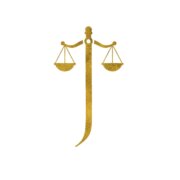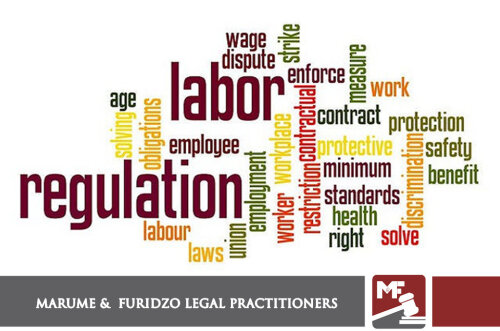Best Child Visitation Lawyers in Harare
Share your needs with us, get contacted by law firms.
Free. Takes 2 min.
Free Guide to Hiring a Family Lawyer
List of the best lawyers in Harare, Zimbabwe
About Child Visitation Law in Harare, Zimbabwe
Child visitation laws in Harare, Zimbabwe, are designed to ensure that children maintain meaningful relationships with both parents following a separation or divorce. These laws are guided by the best interests of the child, emphasizing stability, safety, and the emotional needs of the child. The legal framework aims to create structured arrangements for non-custodial parents to spend time with their children, which is essential for their development and well-being.
Why You May Need a Lawyer
Seeking legal advice for child visitation matters is often necessary in several situations, such as:
- Establishing Visitation Rights: If you're a non-custodial parent seeking to establish a visitation schedule, a lawyer can help you navigate the legal processes involved.
- Modifying Visitation Arrangements: Changes in circumstances such as relocation, changes in work schedule, or the child's needs might require legal modification of the original visitation arrangements.
- Enforcement Issues: If one parent is not adhering to the agreed-upon visitation schedule, legal intervention might be necessary to enforce the terms.
- Complex Custody Disputes: Situations involving allegations of abuse, neglect, or other serious issues may require professional legal representation to protect the child's interests.
Local Laws Overview
Key aspects of child visitation laws in Harare, Zimbabwe, include:
- The Children's Act and Family Law: These statutes provide the foundational framework for decisions on custody and visitation, prioritizing the best interests of the child.
- Court Orders: Visitation arrangements are usually established through court orders, which are legally binding and must be followed by both parties.
- Mediation Services: The law encourages resolving disputes amicably through mediation before resorting to court intervention.
- Non-custodial Parent Rights: The law acknowledges the right of non-custodial parents to maintain a relationship with their child through regular and reasonable visitation.
Frequently Asked Questions
What is the purpose of child visitation laws?
The primary aim is to ensure the child has a continued relationship with both parents post-separation or divorce, focusing on their best interests.
Can visitation rights be denied?
Visitation rights can only be limited or denied when there is a legitimate concern for the child's safety or well-being.
How can a visitation agreement be modified?
Modifications require evidence of a significant change in circumstances and are subject to court approval.
What should I do if the other parent refuses visitation?
If a court order for visitation is in place and the other parent refuses, you may need to seek legal enforcement through the courts.
Are grandparents entitled to visitation rights?
Under certain conditions, grandparents may apply for visitation rights if it's in the child's best interest.
Do visitation rights grant overnight stays?
Overnight stays depend on the specifics of the visitation order and what the court deems beneficial for the child.
Is mediation mandatory in visitation disputes?
While not always mandatory, mediation is highly encouraged as a means of reaching a resolution without court intervention.
Can a child refuse visitation?
Depending on the child's age and maturity, their preferences may be considered, though ultimately, the court decides based on the child's best interests.
How are visitation schedules typically structured?
Schedules can vary, but common arrangements include alternating weekends, specific weekdays, and shared holidays.
What if I need to relocate with my child?
Relocation often requires court approval as it significantly impacts visitation arrangements. You may need to present a new visitation plan.
Additional Resources
When dealing with child visitation issues in Harare, the following resources may be helpful:
- Legal Aid Directorate: Offers free legal assistance to those who cannot afford private legal representation.
- Zimbabwe Women Lawyers Association (ZWLA): Provides legal advice and support on family law matters.
- Family Court: The primary institution for addressing custody and visitation issues.
- Zimbabwe Human Rights NGO Forum: Offers resources and advocacy support for children's rights.
Next Steps
If you need legal assistance regarding child visitation in Harare:
- Consult a Family Lawyer: Engage a lawyer specializing in family law to provide guidance on your specific situation.
- Gather Documentation: Prepare all necessary documents, including prior court orders and communication records, pertinent to your case.
- Consider Mediation: Explore mediation services to resolve disputes amicably if both parties are willing.
- File a Court Application: If issues cannot be resolved through negotiation or mediation, you may need to seek a court's intervention.
Lawzana helps you find the best lawyers and law firms in Harare through a curated and pre-screened list of qualified legal professionals. Our platform offers rankings and detailed profiles of attorneys and law firms, allowing you to compare based on practice areas, including Child Visitation, experience, and client feedback.
Each profile includes a description of the firm's areas of practice, client reviews, team members and partners, year of establishment, spoken languages, office locations, contact information, social media presence, and any published articles or resources. Most firms on our platform speak English and are experienced in both local and international legal matters.
Get a quote from top-rated law firms in Harare, Zimbabwe — quickly, securely, and without unnecessary hassle.
Disclaimer:
The information provided on this page is for general informational purposes only and does not constitute legal advice. While we strive to ensure the accuracy and relevance of the content, legal information may change over time, and interpretations of the law can vary. You should always consult with a qualified legal professional for advice specific to your situation.
We disclaim all liability for actions taken or not taken based on the content of this page. If you believe any information is incorrect or outdated, please contact us, and we will review and update it where appropriate.















